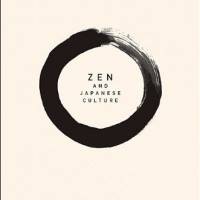This is one of those books you read to the last page without ever finishing; you keep going back for more — and finding it.
Strange, strange characters, these Zen men! What to make of their weird utterances? "(A) master, holding up his staff, says: 'If you have one, I give you mine; if you have none, I will take it away from you.'"
Zen and Japanese Culture, by Daisetz T. Suzuki.
Princeton University Press, Nonfiction.
"There is no rationalism in this," comments the author laconically. So it's irrational — meaning what? Absurd? Insane? Nonsensical? Enlightened?
"Zen has no special doctrine or philosophy," the author explains, "... except that it tries to release one from the bondage of birth and death, by means of certain intuitive modes of understanding peculiar to itself."
Peculiar indeed. Indian and Chinese in origin, Zen is said to have been introduced into Japan by the monk Eisai (1141-1215). "Intuitive modes of understanding" appealed especially to the rising class of warriors — men of action whose constant proximity to death hardened them against the subtle nuances of the elegant, bookish Buddhism favored by the aristocracy.
Daisetz T. Suzuki (1870-1966) was the West's best Zen teacher. His idiosyncratic English is oddly beautiful. "Zen and Japanese Culture" covers familiar territory in unfamiliar ways. The haiku poet, the tea master and the swordsman, to be true to their callings, "must think of neither life nor death." The swordsman, to emerge victorious, must "give up the idea of surviving the combat." Does that speak to us in the 21st century? Or is Zen, for better or worse, a lost language?
Read archived reviews of Japanese classics at jtimes.jp/essential.


















With your current subscription plan you can comment on stories. However, before writing your first comment, please create a display name in the Profile section of your subscriber account page.